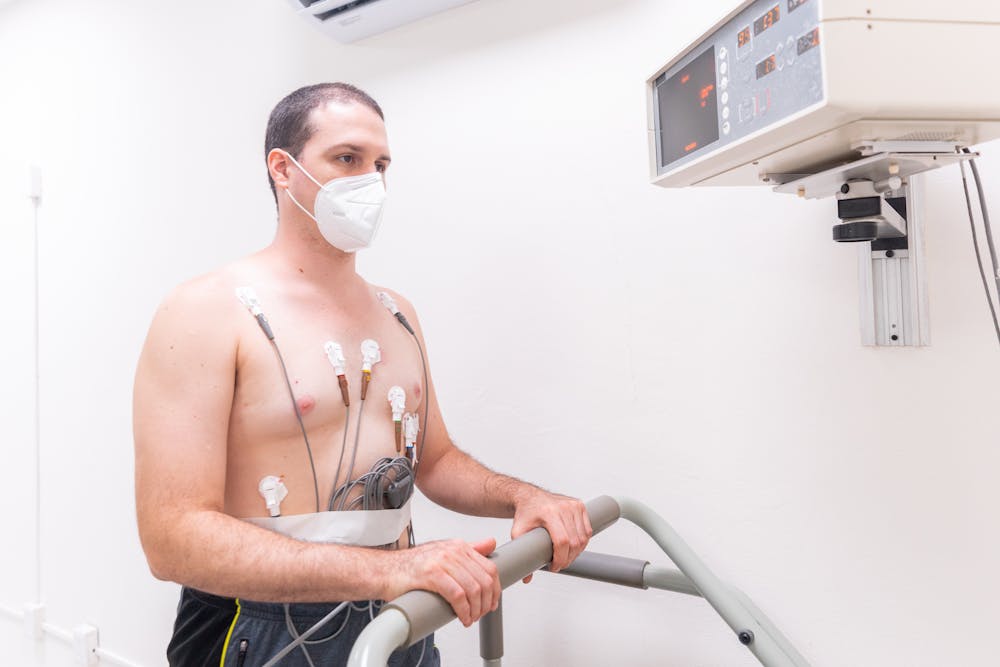A severe heart condition can make daily activities, including those related to working, difficult or impossible to do. If a heart problem prevents you from working, heart disability benefits through the Social Security Administration may be available as a financial resource.
According to an SSA report, approximately 11% of the applications it approves for benefits are Social Security heart disability claims. Meeting the requirements for the Social Security Disability Insurance benefits takes time and is not easy. The team of disability professionals at Sackett and Associates has been helping people with disabilities throughout California and nationwide with their SSDI claims for more than 45 years.
Requirements of the SSDI Program
Applicants for benefits from SSDI for heart disease must be disabled according to a specific definition used by the SSA to evaluate claims. However, before the SSA evaluates their medical condition, applicants need to meet a work requirement.
The SSDI program is for people who have worked long enough before becoming disabled. When a person works at a job and pays Social Security taxes on their income, they earn up to four work credits per year based on their earnings.
One work credit is earned in 2025 for each $1,810 in wages during each quarter of the year. The earnings per work credit change annually.
Depending on their age, workers generally need 40 work credits. Twenty of them must be earned within 10 years of the onset of their disability. Younger workers who become disabled require fewer credits.
Someone with a disabling heart problem who cannot meet the work-credit requirements for the SSDI program should consider applying for disability benefits through the Supplemental Security Income program.
As a needs-based program, SSI has income and resource limitations that applicants must meet. Both disability programs use the same standard for defining a disability to evaluate claims.
Social Security Disability Review Process For Heart Disability Benefits
A person applying for disability benefits must be unable to do substantial gainful work activities because of a medically determinable physical or mental impairment, or a combination of impairments. The impairments must have lasted or be expected to last for at least 12 months or be expected to result in death.
The SSA employs the following five-step sequential review process to determine whether to approve applicants with heart conditions for disability benefits:
- Step One, Work Activity: A review of an applicant’s work activity must not be at the substantial gainful activity level. The SSA bases this on monthly earnings that must not exceed the substantial gainful activity amount, which is $1,620 for someone with a disability and $2,700 for blind individuals. These 2025 amounts may change next year.
- Step Two, Duration of Impairment: If a person is not working or is not doing substantial gainful activity, step two evaluates whether their impairment is severe and expected to last for at least 12 months or cause death. If it is not, they are not disabled. Otherwise, the review moves to step three.
- Step Three, Listing of Impairments: The SSA maintains a Listing of Impairments, including heart problems, considered severe enough to meet the disability definition used to evaluate claims. A person with a listed impairment is disabled, and the review process ends.
- Step Four, Past Relevant Work: Although a person’s heart condition may not meet a listed impairment, they could meet the disability standard by being unable to do relevant work they did in the past.
- Step Five, Other Types of Work: A person unable to do past types of work because of their medical condition must be unable to adjust to doing other work. Also considered are the person’s age, education, and prior work experience.
Medical documentation is essential for success and disability benefits approval in cases of heart problems. It also helps to have a condition that meets a listed impairment.
Heart Problems and The Listing Of Impairments
Section 4.00 of the listings of impairments contains several types of heart problems, including:
- Chronic heart failure
- Ischemic heart disease
- Recurrent arrhythmias
- Symptomatic congenital heart disease
- Heart transplant
- Aneurysm of aorta or major branches
- Chronic venous insufficiency
- Peripheral arterial disease
Each listed impairment includes symptoms and other criteria that medical evidence must prove for disability approval for heart problems based on a listed impairment.
Get Assistance From A Disability Lawyer
The Social Security Disability process can be challenging to get through without assistance from an experienced disability lawyer. A representative who understands the application process and the evidence needed to meet the requirements for heart disability benefits gives claimants a distinct advantage over attempting it on their own.
Learn more about SSDI for heart disease by contacting Sackett Law today for a free consultation and claim review.
Source:


Leave A Comment